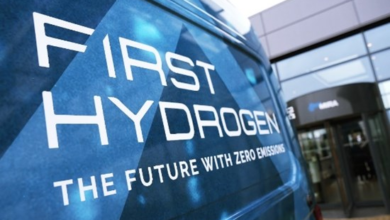Doosan partners for hydrogen-powered BVLOS UAS Operations in the US
Getting to higher density, zero-emissions fuel is an important breakthrough for long-range drone operations.

Doosan Mobility Innovation (DMI) has agreed with Iris Automation and Drone America for pursuing its hydrogen fuel cell technology to enhance scalable systems for long-range, autonomous beyond the line of sight (Bvlos) UAS operations.
The companies will integrate technologies and share operational resources to test and evaluate aircraft platforms and infrastructure to support commercial Bvlos operations.
The partners are looking forward to demonstrating how their combined flight experience, technologies and expertise can help shape the future of Bvlos commercial operations. The partnership is an excellent way for Doosan to jumpstart the progress and collaborate with two pioneers at the forefront of real-world UAV innovation actually to start Bvlos services.
Due to its higher energy density over traditional lithium batteries and zero-emissions profile, Doosan’s Hydrogen fuel cell technology has the potential to sustainably expand Bvlos drone operations for both commercial and public flight operations.
Traditional lithium batteries, which are currently used in small UAS aircraft, do not produce carbon emissions but are limited in range and capacity. Fossil fuel propulsion systems have a longer range but at the expense of carbon emissions and high environmental noise.
Iris Automation’s Casia allows an uncrewed aerial vehicle (UAV) to see and react to the aviation environment around the aircraft, enabling real-time airspace awareness onboard the Bvlos UAV’s during flight operations.
Drone America specialises in designing and manufacturing uncrewed aircraft systems. It is in the process of developing a fleet of certified above 55 lb aircraft that takes full advantage of Doosan’s fuel cell systems and incorporate Iris’s Casia for real-time airspace awareness.
